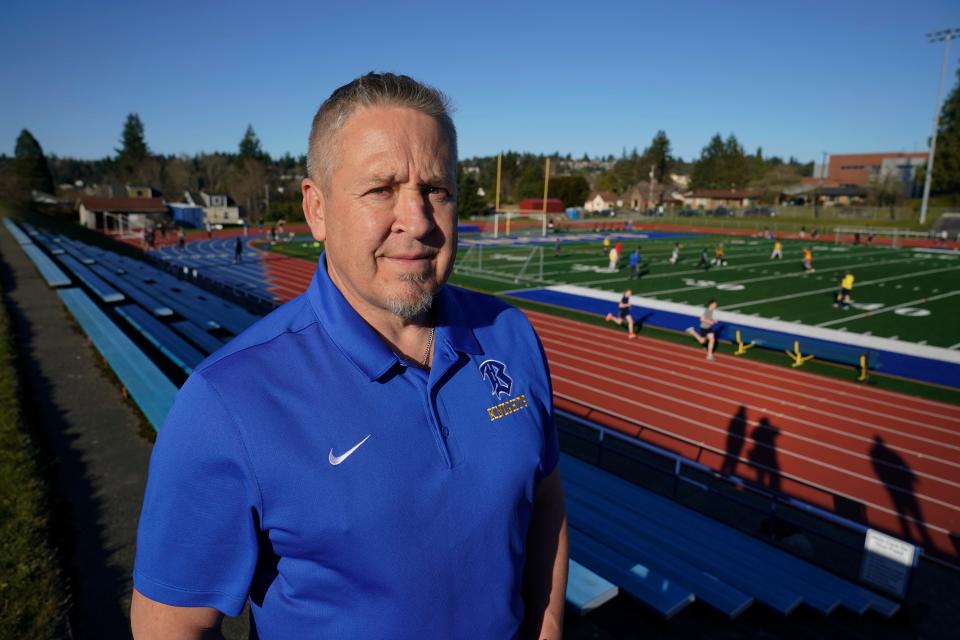Supreme Court sided with praying football coach. What now for coaches and players?

The Supreme Court ruled 6-3 in favor of Joseph Kennedy this week in a decision that could have broad implications for coaches and teachers across the country. IndyStar asked several legal experts what the implications of the ruling are on coaches, players and schools.
What happened in the Kennedy Case?
Kennedy is a former high school football coach who lost his job in 2015 after praying on the 50-yard line following his team’s games. The school worried that the coach praying would violate the Establishment Clause, which prohibits the government from creating or establishing a religion.
What is public expression vs. private expression?
At the core of this issue are two questions: One, what dictates private religious expression versus public expression? And two, when does a coach or school employee cease acting in their official school (and governmental, in the case of public school employees) capacity and become a private citizen? The Supreme Court decided that Kennedy was engaging in private religious practices. However, justices that dissented, as well as the legal experts IndyStar spoke with, said there is a fine line.
For more on what led the Supreme Court decision, click here.
More: Supreme Court backs praying coach Joseph Kennedy who knelt on the 50-yard line after games
If students or players felt coerced to participate in prayers, that would violate the Establishment Clause. However, Justice Neil Gorsuch wrote in the majority opinion that the prayers “were not publicly broadcast or recited to a captive audience. Students were not required or expected to participate.” Justice Sonya Sotomayor said students could have felt coerced to join in.
“While the Court reaffirms that the Establishment Clause prohibits the government from coercing participation in religious exercise, it applies a nearly toothless version of the coercion analysis, failing to acknowledge the unique pressures faced by students when participating in school-sponsored activities,” she wrote. “This decision does a disservice to schools and the young citizens they serve, as well as to our Nation’s longstanding commitment to the separation of church and state.”
“Basically, you have two questions,” said Daniel Conkle, a professor of law emeritus and adjunct professor of religious studies at Indiana University. “One, is the teacher or the coach acting as a teacher or coach or are they acting in their private capacity? Even the dissenters in this case, would concede that a teacher who quietly says grace in the lunchroom, before having lunch, would be engaged in private religious activity. If a teacher sitting at her own desk is reading the Bible, I think that would clearly count as private religious exercise. And two, at what point does the coach’s conduct change from being the coach in his official capacity to being in a private capacity? It's really fuzzy. The bottom line here is that the Supreme Court has significantly muddied the waters.”
What does this mean for coaches and players?
Conkle said the ruling puts schools “between a rock and a hard place.”
“If a particular expression is regarded as school sponsored, the school might be subject to a lawsuit claiming that school is violating the establishment clause,” he said. “But if the coach or any other school employee successfully maintained that this is private religious expression, then the employee would potentially be protected by this ruling, and the school could be liable in the other direction.”
It remains to be seen if more coaches will pray after games. What happens if they do also remains unclear.
“This is a victory for public school educators. It's a victory for coaches,” David Callaway, religious freedom specialist with the Freedom Forum, said. “But it comes at the expense of ensuring that students are not coerced, or at least it makes that gray area a little bit wider and a little bit grayer for how students get treated in public schools.”
The lack of clarity will lead to confusion for everyone involved, Callaway said.
“I'm afraid that a lot of people will take this as permission to pray more in front of students,” he said. “I should stress that teachers, as this decision makes clear, do not lose their First Amendment rights when they walk in the school doors, and that's really important. As an educator, you do get to bring your private self into that space, even if there are some limitations on it. But the reason why those limitations exist is to protect students’ consciences and their rights. That's the balance that's really important.”
Will this ruling impact private schools?
This ruling will not impact private or religious schools in any way, many of which conduct prayers on the field before or after games.
“Private schools are not restricted by the First Amendment,” Conkle said. “They are not precluded from promoting religion. Private schools are free to have even officially organized prayer activity within the context of their school setting. They're not subject to the same rules that the public schools historically had been subjected to.”
Follow IndyStar trending sports reporter Matthew VanTryon on Twitter @MVanTryon and email him story ideas at matthew.vantryon@indystar.com.
This article originally appeared on Indianapolis Star: Supreme Court sided with praying coach. What happens next?

